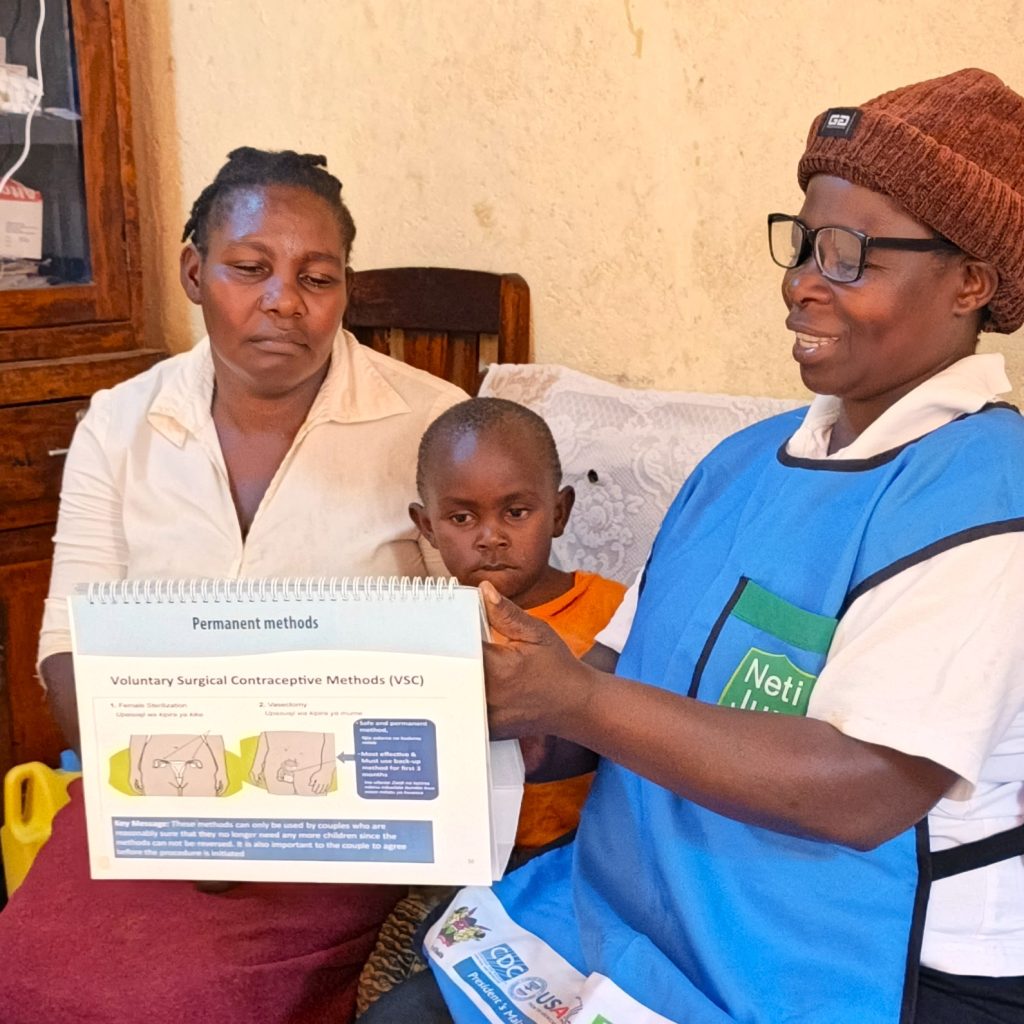Posted on: September 25, 2025
When Elizabeth Mideva met a mother in her village who had given birth to four children in just four years, she saw firsthand the toll of unplanned pregnancies. The young woman was frail and constantly exhausted, unable to join social gatherings or earn an income. At home, the pressure of raising four toddlers strained her marriage. Her husband, overwhelmed and withdrawn, could not meet the family’s growing needs.
For Elizabeth, who has served as a Community Health Promoter in Vihiga, Kenya for 15 years, this story was painfully familiar. Covering 22 households with 32 women of reproductive age, she knows too well that when women are denied access to family planning, their health, dignity, and livelihoods suffer.
Elizabeth believed things could be different. Patiently, she educated her client about the benefits of child spacing and the contraceptive methods available at the nearby health facility. At first, fear and misinformation held the mother back. But Elizabeth kept visiting, answering questions, and building trust.

Change came when the woman attended a family planning open day at Lyanaginga Subcounty Hospital. After counseling, she chose a five-year implant. That single decision marked a turning point.
Her health began to flourish, she regained her strength, her confidence, and her independence. She now participates in small income-generating activities and cares for her children with renewed energy. At home, the relationship with her husband improved. Relieved from the stress of constant pregnancies, he became more supportive and present.
The clearest sign of transformation came in 2021, when the couple welcomed their youngest child after a planned and healthy spacing. Unlike the earlier children born in rapid succession, this baby is thriving, strong, healthy, and a symbol of the power of choice.
Elizabeth sees this family’s journey as proof of what she has always believed: family planning is not just about preventing pregnancies; it restores dignity, strengthens families, and builds hope for the future.
This is the essence of World Contraception Day 2025, which calls on us to “Break Barriers and Build Bridges – Contraceptive Access for All.” Elizabeth’s persistence broke through fear and misinformation, while her compassion built the bridge to care and choice.
Stories like this remind us that family planning is about more than health services. It is about equity, opportunity, and stronger generations to come. On this World Contraception Day, let us commit to breaking down the obstacles that stand in the way, stigma, service gaps, and misinformation, while building bridges that connect women, families, and communities to the care they deserve.
